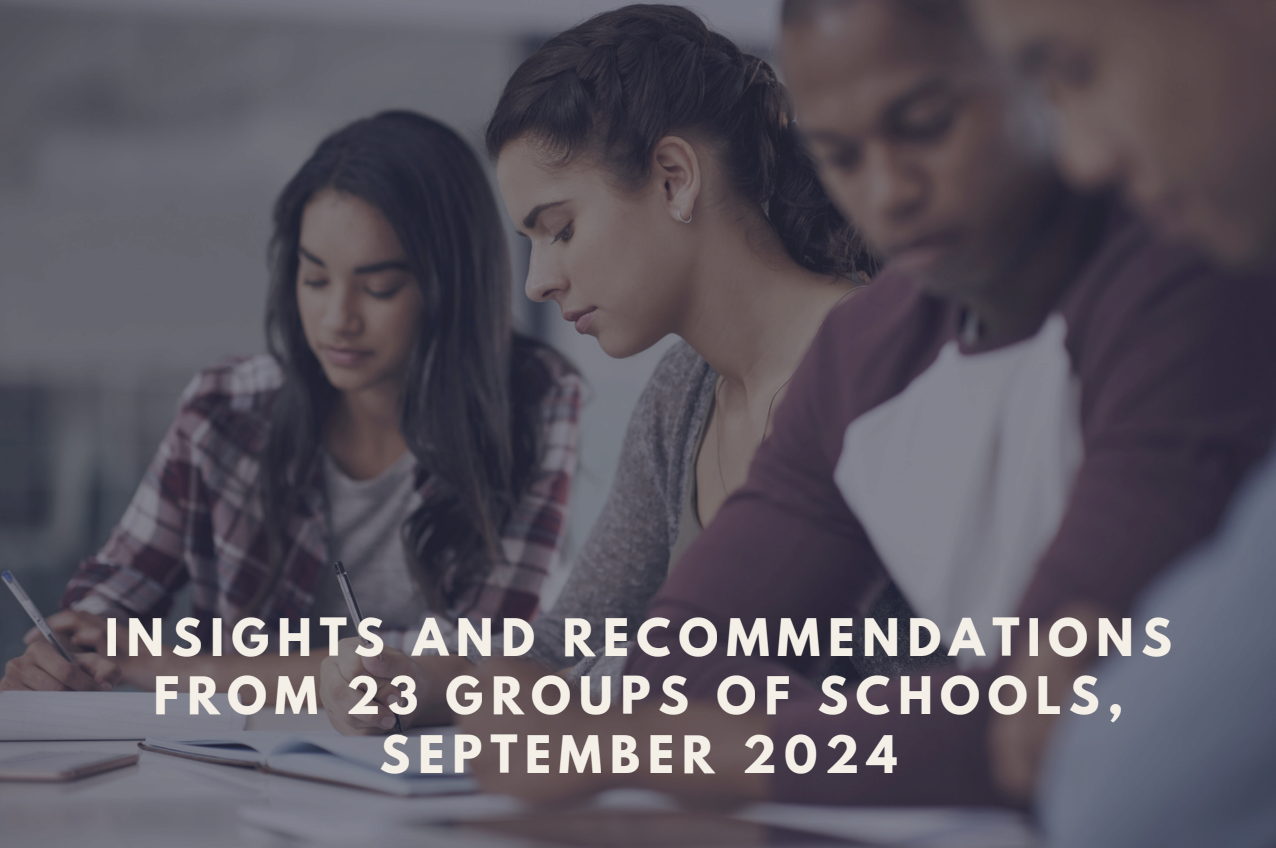Shape of the Future: How Education System Leaders Can Respond to the Provocations of Artificial Intelligence
A Set of Insights and Recommendations from 23 Groups of Schools, September 2024
On 18 September 2024, a team of 23 Multi-Academy Trusts from across England published a pathfinding report setting out a 10 point guidance framework for those leading AI in schools, and a set of 29 practical recommendations for school system leaders.
LEO Academy Trust was part of a team of multi-academy trusts representing 413 schools, 250,000 students and 32,00 staff, with other MATs including Oasis Community Learning, Bourne Education Trust, LEO Academy Trust, United Learning, Woodland Academy Trust, David Ross Education Trust, E-ACT, Great Schools Trust, King Edward VI Foundation, L.E.A.D Academy Trust, Maritime Academy Trust, Prince Albert Community Trust, Rainbow Academy Trust, Robin Hood Multi Academy Trust, RGS Worcester Family of Schools, The Arthur Terry Academy Trust, Galileo Academy Trust and the Warwick Schools Foundation.
Over the last academic year, the group worked together through a series of in- person workshops and virtual learning lunches, with contributions from Professor Rose Luckin, Baroness Martha Lane Fox, Professor Sugata Mitra, Professor Sanjay Sarma, Professor Miles Berry, Sir Anthony Seldon, Erika Twani, John Murphy, Dan Fitzpatrick, Dina Foster, and David Weston, curated by Dr Fiona Aubrey-Smith. Provocations touched upon considerations ranging from contemporary thinking about what it means to be a teacher in the AI age, through to the organisational leadership of schools and trusts. Lively discussions explored safeguarding, data and security, use cases and evaluation of impact, and shared insights about the practicalities involved in leading AI across a MAT – both strategically and operationally.
The project formed as a result of a shared belief that by contributing insights, questions and expertise, this ‘community of purpose’ could offer the wider sector both an informative research report sharing trends and insights, alongside a practical tool in the form of a ‘MAT AI Guidance Framework’.
The report can be downloaded from the website of any of the participating MATs, with contact names of all those involved enabling interested parties to make contact with relevant leaders for further discussion and support.


